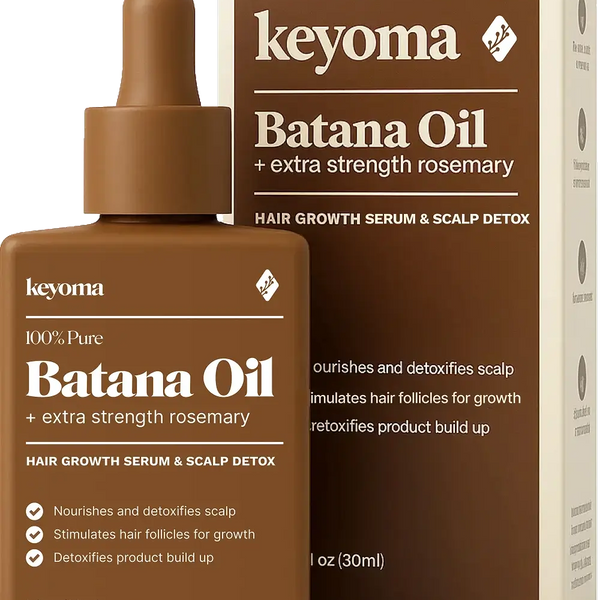In this article
People love lemons for their tart flavor in drinks and food, and you probably reach for that taste often. Lemon-scented products are also popular across the globe for the clean, bright aroma you enjoy.
You see them everywhere today, from lemonade and lemon-flavored sweets to lemon-scented cleaners, lemon-infused goods, and lemon essential oils.
Many people don’t realize that lemons show up in the histories of many cultures. Their story stretches from gardens in ancient Rome and Egypt to meals packed for traveling sailors.
Key Takeaways
-
Damaged hair can show cracked cuticles, poor moisture retention, and frizzy, dry appearance.
-
Common causes include chemical processing, frequent heat, UV exposure, hard water, and friction.
-
Signs include brittleness, breakage or shedding, easy tangling, dullness, and poor product results.
-
Care strategies include deep conditioning, protein masks, trims, reduced heat, detanglers, and low-friction fabrics.
What are Lemon Oils?
Lemon oil comes from the peel of fresh lemons through cold pressing. It’s a concentrated liquid with active compounds like limonene, citral, and alpha-pinene. These components create lemon essential oil’s distinct scent and its strong therapeutic qualities.
Benefits Of Lemon Oil For Hair Growth
Lemons offer many benefits and may address common hair concerns you face. The sections below cover ways you can use lemon oil for hair. Let’s look at the main benefits of lemon essential oil for hair in more detail.

Boost Natural Shine
One standout benefit people note with lemon oil is the shiny look it gives hair. Vitamin C supports collagen production, which can improve hair texture.
It also has astringent properties that help tighten follicles; used as a hair tonic, you may see smoother, stronger, and shinier strands.
Help Reduce Dandruff
Lemons provide vitamin C, citric acid, flavonoids, and iron that support your scalp. Lemon’s antifungal actions are described as reducing dandruff, a common trigger for hair loss.
Lemon oil may unclog pores around follicles and ease flakes on the scalp. If you deal with seborrheic dermatitis, a form of dandruff, lemon oil could absorb excess oil that contributes to this issue. Lemon oil helps prevent dandruff buildup.
Support Scalp Health and Hair Oil Balance
The citric acid in lemon oil is said to keep follicles from loosening, which may mean less hair fall for you. Its antifungal traits help keep your scalp free of infections.
Lemon natural oil can also balance oil levels, so your scalp feels less greasy. Along with that, antibacterial and astringent effects support a cleaner scalp environment and help protect from infections.
Encourage Hair Growth
Another noted benefit is support for hair growth. Antioxidants plus a range of vitamins and minerals deliver nutrients your hair needs to grow stronger.
If you’re trying to grow your hair longer, this oil may be useful because weak, dull strands often grow slowly when nutrients are lacking. You can use a lemon oil blend for scalp massage therapy to reduce itch and encourage circulation that supports growth.
Strengthen Hair Strands
As mentioned above, lemon oil contains important nutrients, and regular use may strengthen your hair follicles and support steady growth.
It may also help restore your scalp’s pH balance, which in turn supports the health of both scalp and hair growth.
Side Effects Of Lemon Juice
While using lemon oil on your scalp and hair may offer benefits, you should also consider risks and basic precautions. Here are possible side effects of lemon oil and steps you can take to use it safely:

Possible Skin Irritation
Anecdotal reports say lemons can ease dry skin and flakes. Still, proceed carefully if you have eczema or psoriasis. Citric acid might be too strong and could irritate your skin. You should stop using it if you notice redness, more irritation, or itchiness.
Possible Contact Reaction
Another risk is phytophotodermatitis, a contact reaction to certain plants. It causes inflammation and blisters, then darkened spots on the skin that can linger for weeks.
Lemons, along with oranges, parsley, and parsnips, can trigger this in some people. It won’t affect your hair directly, but it may impact your scalp, especially if it’s exposed to sunlight.
How to Safely Use Lemon Oil for Hair
You have several simple ways to use lemon oil for your hair. Try one of the methods below to get started:

Scalp Massage Method
One of the easiest ways to use lemon oil is a scalp massage. Mix a few drops of lemon oil with a carrier oil like batana, coconut or jojoba, then massage the blend into your scalp for a few minutes.
For me, a gentle three-minute massage made my scalp feel calmer. Leave it on for at least 30 minutes before you wash your hair.
Use as a Hair Rinse
You can also make a hair rinse to boost shine and lift buildup. Mix a few drops of lemon oil with water and pour it on as a final rinse after you shampoo. Rinse your hair well with water afterward so no oily residue remains.
Add to Shampoo and Conditioner
Another option is to add a few drops of lemon oil to your favorite shampoo and conditioner. That addition may enhance how they work and leave your hair feeling clean and refreshed.
Lemon essential oil is a versatile natural remedy with several hair benefits. From supporting growth to easing dandruff and adding shine, lemon oil can improve how your hair looks and feels.
Start a Patch-Tested Lemon Oil Trial This Week with Keyoma
Pick your path based on sun exposure, not hype. If your scalp will be in sunlight today, keep lemon oil as a short pre-wash only: dilute a few drops in a carrier, massage for three minutes, leave it on at least 30 minutes, then shampoo and cover up outside.
If you will be indoors, try a shine test as a final rinse: add a few drops to water, pour through clean hair, then rinse with water so nothing lingers.
Patch-test first if you have sensitive skin, and stop if redness or itch appears; citrus can trigger light-driven skin reactions on exposed areas.
Get dilution steps, patch-test checklists, and safer citrus routines in the Keyoma Hair Care blog.
Featured Product
100% Pure Batana Oil + Rosemary









